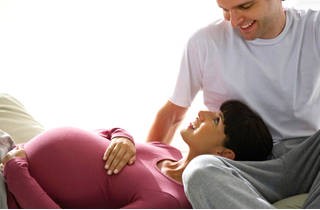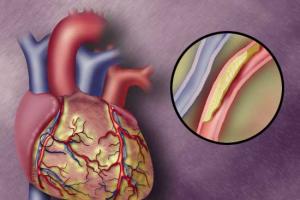Often the question-complaint "Why do you want to sleep during pregnancy?" the doctor is asked by women at an early stage. In most cases, this is a normal condition that does not require treatment. After the fertilized egg enters the uterus and strengthens it there, the female body begins to increase the production of the hormone progesterone. Its excess is expressed in drowsiness, irritability and a feeling of depression.
A constant desire to sleep haunts the pregnant woman in the last weeks. At this time, the body is actively preparing for the upcoming labor activity. This state is also considered safe. In addition to the hormonal storm and chronic fatigue, there are a number of reasons why you want to sleep during pregnancy. Let's consider them in more detail.
When conception occurs, a woman's body undergoes massive hormonal changes. They affect all internal organs and their systems. Here are a number of reasons due to which there is an irresistible desire to sleep.
- Decreased immunity. If there is no weakening of protection, the “foreign body”, which is the embryo, will simply be rejected. This, as a rule, leads to a decrease in pressure, general weakness and drowsiness.
- Avitaminosis. Since a new organism is being formed at the moment, the reserve of useful substances (vitamins and other trace elements) begins to deplete.
- Toxicosis. Many women are annoyed by toxicosis that exhausts them all day. Bouts of vomiting also contribute to the leaching of nutrients. As a result, anemia develops.
- Stress. A pregnant woman needs more time to rest. But quickly switching to another mode is not always possible. Yes, and the modern rhythm of life is making its contribution. Therefore, even very calm women in the early stages are in a state of constant stress.
- Nervous tension. This is due not only to the news about the upcoming replenishment, but also to the need to adapt to new circumstances, the desire to collect the maximum amount of information about the course of pregnancy. But you still need to think about how best to communicate the news to others - relatives and employees. By the way, the attitude of colleagues directly affects the state of mind of a woman expecting a baby.
- Prejudice. There are women who by all means try to hide their pregnancy from others. They argue this with the fear of the "evil eye". Here's another reason to worry.
Restructuring in the endocrine sphere disrupts the entire established working rhythm. It is forbidden to resort to the help of standard stimulants (strongly brewed tea and coffee) for pregnant women - too high a risk to health and to the fetus. At an early stage, it is allowed to overcome drowsiness with good nutrition, a reasonable balance of work and rest, healthy sleep, the duration of which should be at least 8 hours.
It would be great if employees would make concessions to their colleague in position and allow her to take small breaks to change positions or do exercises. After all, it should be uncomfortable for them to work if a tired person who really wants to sleep is constantly near them.
If everything is more or less clear with drowsiness in early pregnancy, then where does it come from in the second trimester? The body has already seemed to have managed to get used to the new state and even developed its own regime, including mandatory visits to consultations. The people around congratulated and accepted the fact of pregnancy with all the ensuing consequences as a given. But, it turned out, not everything is so simple.

To get rid of a depressive state, you need to walk more on the street, eat well, drink something relaxing before going to bed (for example, weak tea or a glass of warm milk with a spoonful of honey). If this does not help, the doctor may prescribe mild sedatives, and in severe cases, antidepressants.
The expectant mother should know that herbal therapy should, first of all, be asked by the doctor. In principle, it is possible for pregnant women to engage in herbal medicine, but very carefully. The list of permitted herbs is limited to valerian, mint and motherwort.
Starting from about 32 weeks of pregnancy, a few more are added to all the above causes of drowsiness:

Learning to sleep on your side should start from the second trimester. First, you should roll the blanket with a roller and put it under your stomach or back - it’s more familiar for anyone to fall asleep. Then little by little, in a few days, you need to increase the height of the "roll".
It is unrealistic to sleep on your stomach in the last months of pregnancy. And on the back - it is not recommended, no matter how much you would like it.
If you constantly squeeze the vessels that supply food and oxygen to the uterus and lower limbs, there will be a violation of the reverse outflow of blood. As a result, the unborn child gets hypoxia, and his mother gets serious health problems.
Normal sleep at 38 weeks is almost impossible. There is an active preparation of the body for labor. Training fights do not allow a woman to relax even at night. Despite the fact that they last only 1-2 minutes, falling asleep after them is extremely problematic.
When a future mother is carrying a baby, her main task is to take care of both the child and her health. Therefore, quality healthy sleep is so important for a pregnant woman. One of the main rules of a woman in a position should be - "I sleep as much as I want." It is recommended not to take part in highly exciting entertainment. It is best to spend your free time on a leisurely walk, which will help you fall asleep quickly and calmly. After returning from the street, it is good to take a warm shower and drink a glass of milk. In no case should you take a hot shower or bath, even if you really want to.
You need to go to bed early. A good motivator will be the realization that a successful pregnancy depends on it. It is advisable to go to bed before 22:00, since from this time until 01:00 sleep is considered to be of the highest quality. The bed should be of medium hardness. Sleeping expectant baby is recommended on the left side.
When a woman has already gone on maternity leave or works at home, she can freely set aside a couple of hours for daytime sleep. In the event that a pregnant woman is busy all day, she needs to properly plan her affairs in order to be able to sleep well at night.
 If the expectant mother is constantly struggling with an irresistible desire to fall asleep, but all her tests are in order and nothing else worries her, there is no need to run to the doctor. You just need to lie down and relax. After all, any restrictions on rest or sleep can adversely affect the health of a woman and her unborn baby. Overexertion threatens to increase the tone of the uterus - an extremely undesirable and even dangerous condition.
If the expectant mother is constantly struggling with an irresistible desire to fall asleep, but all her tests are in order and nothing else worries her, there is no need to run to the doctor. You just need to lie down and relax. After all, any restrictions on rest or sleep can adversely affect the health of a woman and her unborn baby. Overexertion threatens to increase the tone of the uterus - an extremely undesirable and even dangerous condition.
Sometimes constant drowsiness alarms a pregnant woman. Then she needs to create conditions for a good rest. For example, take a walk down the street before going to bed, and on weekends make a trip to nature. If there are no serious causes of malaise, these methods should help.

Drowsiness during early pregnancy and before childbirth is a common occurrence. Many women report an obsessive desire to sleep during this period. Sometimes this is alarming and even frightening for expectant mothers, forcing them to visit the antenatal clinic once again.

Why do you want to sleep during pregnancy? How normal is this feeling and is it associated with some kind of complication? Expectant mothers constantly ask attending physicians such questions.
The eternal desire to sleep at this time is rarely a sign of pathology. Usually it is associated with the restructuring of the body, because now the woman is carrying a new life. Her body is preparing to work for two, and this can manifest itself in a variety of reactions.
Drowsiness during pregnancy can be of varying severity - depending on the trimester. And it is caused by many reasons.
First trimester
Why do you always want to sleep in the first trimester? Sleepiness in the early stages is considered a characteristic sign of pregnancy. Most expectant mothers are familiar with the sensations when at any time of the day thoughts are only about sleep. Moreover, this desire is not associated with physical activity or fatigue, it is present even after a good night's rest.
This is due to the following reasons:
- The body's response to stress.
- Hormonal imbalance.
- Changes in the functioning of organs and systems.
Although pregnancy is a pleasant event, it is still a certain stress for the body. The emergence of a new life provokes an immune conflict between mother and child, causes intense work of all systems. And this, in turn, entails the need for rest.
During the period of bearing a baby, the metabolism of a woman's hormones completely changes. Progesterone and prolactin, which ensure the normal course of pregnancy, come to the fore. Progesterone has a relaxing effect on the body, and it is he who in most cases is considered the culprit of such excessive sleepiness.
No less important is the increasing load on the organs. During pregnancy, blood flow increases, and its volume doubles. The growing uterus shifts the center of gravity and the spinal column has to adapt to these changes. Ligaments relax, joints become more mobile, weight grows.
And, although all these processes proceed slowly and imperceptibly, it can be difficult for the body to cope with the increasing load, and it signals the need for rest with a constant desire to sleep.
Second trimester

In the second trimester, as a rule, drowsiness recedes. Although there are women who, even during this period, do not stop wanting to sleep day and night. This may be due to their individual characteristics, but sometimes it is a manifestation of certain diseases.
If in the middle of pregnancy the desire to sleep increases, and the expectant mother constantly feels tired and overwhelmed, it is necessary to inform the doctor about this. Most often, you want to sleep during pregnancy due to the following pathologies:
These conditions are easily diagnosed and effectively treated even during the period of bearing a baby, so do not be afraid of examinations and medications. Untreated diseases can harm a woman and a child much more.
Vitamin deficiency
Hypovitaminosis in modern women is not uncommon. The lack of high-quality fruits and vegetables, malnutrition, constant indoor exposure leads to the fact that the body begins to lose its supply of vitamins. With the onset of pregnancy, they are spent on the needs of a growing baby and decrease twice as fast.
If a woman at the planning stage did not take special vitamin complexes, she may well face the problem of hypovitaminosis. In addition to constant drowsiness, it can manifest itself with other symptoms:
- headaches;
- dryness and cracked skin;
- itching;
- prone to colds;
- bleeding gums;
- burning, paresthesia in arms and legs.
Consulting a doctor will help establish the correct diagnosis and quickly cope with the disease.
Anemia

Anemia is a disease in which the cells receive less oxygen. Chronic hypoxia affects the health of the mother and the development of the child.
A woman may complain about:
- drowsiness;
- constant fatigue;
- dizziness;
- fainting;
- increased heart rate;
- pale skin;
- desire to eat chalk and other unusual substances.
Most often, anemia develops when there is insufficient intake of iron from food or its excessive loss. In women, this is facilitated by heavy periods and pregnancy, when iron is first sent to the developing fetus.
Sometimes the disease is associated with problems in the gastrointestinal tract, due to which the trace element is not able to be absorbed from food in the intestines.
Less often, the cause of anemia is a lack of vitamin B12 (cyanocobalamin) and folic acid. This is a more severe disease, which is characterized by specific complications from the nervous and digestive systems. However, cyanocobalamin and folic acid are necessarily part of vitamin complexes. In addition, they are often prescribed as a prophylactic, which allows you to minimize the likelihood of illness.
Hypothyroidism

An underactive thyroid gland (TG) is called hypothyroidism. This pathology is often found in regions with a lack of iodine in the environment and food.
Hypothyroidism can be suspected by the following manifestations:
- Excessive sleepiness.
- Apathy and adynamia.
- The indifference of a woman, the lack of expressed emotions.
- Memory problems.
- Tendency to constipation.
- Obesity.
- Dry skin.
- Decreased blood pressure.
Violation of the thyroid gland is dangerous primarily for the development of the child. In severe forms of maternal hypothyroidism, the risk of developing the same pathology in a newborn is significantly increased. Reduced thyroid function in the first weeks and months of life can result in severe mental retardation and impaired physical development.
If you constantly want to sleep during pregnancy, and this desire intensifies, you must definitely exclude the pathology of the thyroid gland.
With confirmed hypothyroidism, the expectant mother will definitely be prescribed hormone replacement therapy for a long period.
third trimester

In the third trimester, pregnant women also often want to sleep. But this rarely indicates pathology. As a rule, all existing diseases are detected in the second trimester, and the gynecologist prescribes the appropriate therapy.
What causes drowsiness before childbirth? As a rule, it develops due to ordinary fatigue. By this time, all the organs of a woman work in conditions of double or triple load, with maximum efficiency. And much more time is required for their recovery.
In addition, before childbirth, most women receive a significant weight gain - from 10 to 20 kg. This also does not add to their strength and endurance. The body experiences a heavy weight load every minute and needs proper rest.
There is also a psychological component to such drowsiness. It's no secret that with the birth of a baby, mom will have no time to rest. And a pregnant woman - consciously or subconsciously - tries to sleep off "in reserve", to create a reserve of strength and energy.
But still, in rare cases, drowsiness in the third trimester may indicate a pathology.

There is a formidable complication of the second half of pregnancy, which is called preeclampsia. Often it manifests itself closer to childbirth.
Gestosis is characterized by the following symptoms:
- Edema.
- Increase in blood pressure.
- The appearance of protein in the urine.
Usually, a rise in pressure - arterial hypertension - is accompanied by a severe headache, sometimes with nausea or vomiting. But in some cases, it can also manifest itself as excessive drowsiness.
Also, this symptom can be a harbinger of eclampsia - an attack of seizures. Often it is preceded by a growing headache, nausea, vomiting, flies before the eyes, blurred vision. Drowsiness in the case of preeclampsia is pathological, it occurs suddenly, in the midst of complete health, for no reason. A woman or her relatives may immediately suspect something was wrong.
Occasionally, pathological drowsiness during pregnancy is a symptom of sleep disorders. In such a situation, it can be combined with insomnia. An expectant mother may want to sleep during the day and stay awake at night. Sometimes she has sleep-talking or somnambulism.
How to deal with drowsiness? Treatment depends on the cause that caused it. If we are talking about banal hormonal changes or physical fatigue in the first or third trimester, then there is no drug treatment.
The only thing a woman can do is to rest more and more often. Naturally, in the conditions of a full-fledged professional activity in the early stages, this is difficult to implement. Few employers will be delighted that the expectant mother, instead of working, is resting at the workplace. And no doctor will issue a certificate of incapacity for work with a diagnosis of "drowsiness".
How to be in such a situation? Perfectly helps to cheer up fresh air and physical activity. If the work does not involve even small absences, you can simply open the window and perform elementary exercises. Any change in activity will allow the brain to switch from half-asleep to vigorous activity.
Adds energy and a cup of green tea. But it is important that it is not too strong. But you need to forget about coffee, black tea, energy drinks. Raising the tone of the body with their help during pregnancy is highly discouraged. The same goes for caffeine tablets.
Aromatherapy also helps in the fight against drowsiness. For this purpose, you can purchase special essential oils and apply a couple of drops on furniture, clothes or curtains. The influence of odors is individual, but usually citrus and green tea aromas are used for this purpose.
With pathological drowsiness, one cannot do without drugs, but only a doctor prescribes them.
During pregnancy, a woman needs to rest and sleep as much as she wants. But if drowsiness increases, and other symptoms appear, you need to consult a doctor.








